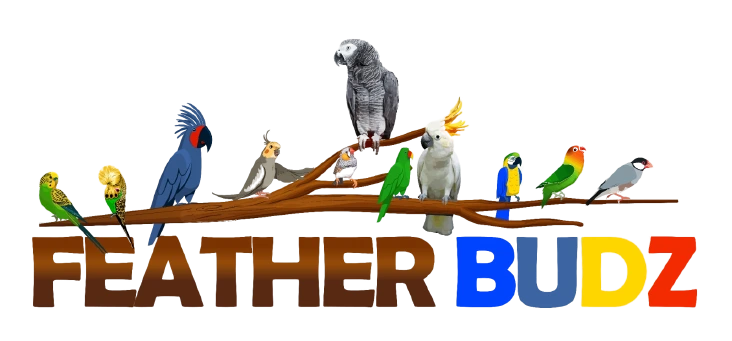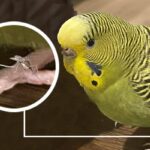Many pet owners ask us whether it is normal for parrot’s beak to grow naturally and if it is necessary to trim it or not. In this blog post we will answer this specific query related to parrot beak.
The outer beak of a bird is composed of keratin which typically undergoes growth similar to that of human fingernails.
Do Parrots Beak Grow is it Necessary to Trim Budgies Beak?
Normally, birds wear down their beaks naturally and do not need regular trimming. However, in some instances, a bird’s beak may become overgrown, which can impede their daily activities such as preening, climbing, and eating. An overgrown beak can result in problems like malnutrition and other health complications for birds, making trimming necessary.
An overgrown beak may occur due to factors such as genetics, inadequate nutrition, as well as trauma and injury.
Do Parrots Need Their Beaks Clipped?
Wild parrots tend to wear down the excess parts of their beaks by rubbing or chewing on various objects such as tree bark, nuts, rocks, and seeds.
In captivity, parrot owners may not provide their birds with the same objects that would naturally wear down their beaks, instead often relying on readily available seeds. As a result, a parrot’s beak may become overgrown, which can hinder their ability to perform essential activities such as climbing, preening, and eating. This may, in turn, lead to various health issues for the bird.
Failure to trim an overgrown beak in parrots may result in the following problems:
- Scissor break
- Overgrown beak
- Prognathism

Scissor beak
Scissor or wry beak refers to a condition in parrots where one side of the beak grows faster than the other side.
If left untreated, the upper and lower beak in a parrot with scissor or wry beak may become overgrown to the point that they are no longer able to meet properly.
Scissor beak may arise from various factors such as genetics, infection, inadequate nutrition, and trauma.
Overgrown beak

An overgrown beak occurs when the upper beak of a parrot grows excessively long, hindering its ability to open and close its beak properly. This can lead to issues such as malnutrition and other health problems for the bird.
It can be cause by improper environment, infection and liver disease.
Prognathism
Prognathism is a condition where the upper front portion of a bird’s beak falls below the lower part of the beak.
Prognathism may be caused by improper egg incubation or genetic factors.
Is Beak Trimming Painful for Birds?
The outer beak of birds, like human fingernails, is composed of keratin. Just as we need to trim our nails when they grow, an abnormally large beak in birds also requires proper trimming, which should be done by a veterinarian.
Trimming an overgrown beak should not cause any pain or discomfort to the bird, as there are no nerves in the overgrown area. As long as the trimming is done correctly and the appropriate amount is removed, it should not be a painful experience for the bird.
What are the Benefits of Beak Trimming?
Beak trimming is not a necessary or routine process for all birds. It is only required when a bird has an overgrown beak, scissor beak, or prognathism issue.
These conditions can cause birds to feel uncomfortable and have difficulty performing activities such as climbing, preening, and eating seeds. As a result, they may experience issues related to malnutrition and other health problems.
Trimming an overgrown beak can prevent these problems and help ensure that your bird remains healthy and content.
Do Trimmed Beaks Grow Back?
Yes, a bird’s beak is made up of the same keratin as its nails and feathers, so it can regrow and become overgrown again in as little as one to twelve months. Providing your bird with cuttlebone, fish, or stones to rub its beak against is a good way to help prevent overgrowth.









